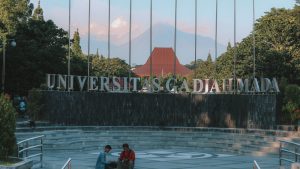In Indonesia, alongside its growing economic foothold, China has increasingly been enhancing what might be termed “think-tank diplomacy.” The strategy is part of the Chinese government’s efforts to strengthen “disciplinary, academic, and discourse systems” in order to project and maintain a positive Chinese image and to increase the “understanding” of China around the world.
China mainly engages with Indonesian think-tanks through its Network of ASEAN-China Think Tanks (NACT) which includes as members 10 Southeast Asian think-tanks. NACT was first initiated by Chinese Premier Li Keqiang in 2013, with an aim to “contribute scholarly work to the ‘diamond decade’ of China-ASEAN strategic partnership.”
The NACT holds regular meetings and seminars with its member think-tanks in ASEAN countries to discuss the progress of China-funded projects, and to identify potential future opportunities for collaboration. China has also often invited the representatives of these think tanks and other scholars to attend meetings in China at which Chinese officials push the government’s official narratives on issues like ASEAN-China Relations, global development, and disputes in the South China Sea.
Wang Zhen, a Ph.D. Candidate at the University of Albany, SUNY, has reported in detail on China’s engagement with think-tanks across all ten members of the Association of Southeast Asian Nations (ASEAN).
The coordinating institution for Chinese think-tank engagement in Indonesia is the ASEAN Studies Center at Universitas Gadjah Mada in Yogyakarta. A former researcher at the center told The Diplomat that the think-tank has received funding from the Chinese government for capacity building and for the participation of its staff in short courses and workshops in China.
Besides the ASEAN Studies Center, other Indonesian think-tanks that frequently participate in activities with their Chinese counterparts include The Habibie Center, the Centre for Chinese Studies, and the Center for Strategic and International Studies (CSIS).
CSIS Indonesia has carried out research for the Chinese Embassy in Indonesia, and received funding from China’s National Institute for South China Sea Studies to conduct research on fisheries and on peace in the South China Sea. The institution was also a preferred partner of the Chinese Mission to ASEAN when it organized the First Jakarta Forum on ASEAN-China Relations in 2021.
Another point of contact for China’s think-tank outreach has been the Habibie Center, a non-profit academic think-tank founded by the former Indonesian president, B.J. Habibie. China, through its mission to ASEAN, collaborated with the Habibie Center in organizing the Second Jakarta Forum on ASEAN-China Relations in June 2019, on the theme of “ASEAN and the Belt and Road Initiative: Prospects for Common Development and Shared Prosperity.” It was clear from the event, which was attended by the then Chinese ambassador to Indonesia and other important representatives of the Chinese and Indonesian governments, that such activities were intended to encourage positive narratives about Chinese investments in Indonesia. For instance, one of the speakers, Ruan Zongze, the executive vice president of the China Institute of International Studies, talked up the positive developments of the Belt and Road Initiative, while belittling the United States.
In addition, China has also partnered with the Foreign Policy Community of Indonesia (FPCI) which has organized various events on China in cooperation with the Chinese Embassy in Jakarta. As reported by Wang, recent activities include China Forum (2020) and Halo China! Video Competition (2021). Moreover, the FPCI has also received support from the Chinese Mission to ASEAN for its Youth Voice for ASEAN-China Cooperation: Writing Competition & Policy Lab (2022). Since 2020, the FPCI has also carried out the annual ASEAN-China Survey, which demonstrates relatively positive views of China’s activities in the region.
China’s ambition to form “think-tanks with Chinese characteristics” in Indonesia is of course part of its strategy to improve its image in a country that is of particular importance to its political and economic foreign policy in ASEAN. It is important to note that there is a growing negative perception of China among Indonesians caused by its assertiveness in the South China Sea, its policy towards the Uyghurs in the Xinjiang region in western China, and its growing economic activities in the country.
In Beijing’s view, think-tanks can serve as an important platform to shift public opinion in Indonesia and spread its own narratives. Through sponsoring and co-organizing events, co-publishing research, and funding research projects at Indonesian think-tanks, China hopes to supplement its educational, media, and “Islamic” diplomacy in the country.
While it is difficult to measure the effectiveness of China’s think-tank diplomacy in Indonesia, the widespread negative views of China among the Indonesian public indicate that these efforts are likely to increase and improve in the coming years. With China’s growing economic and political activities in the region, this think-tank diplomacy could function as a shield against any future criticisms.
































